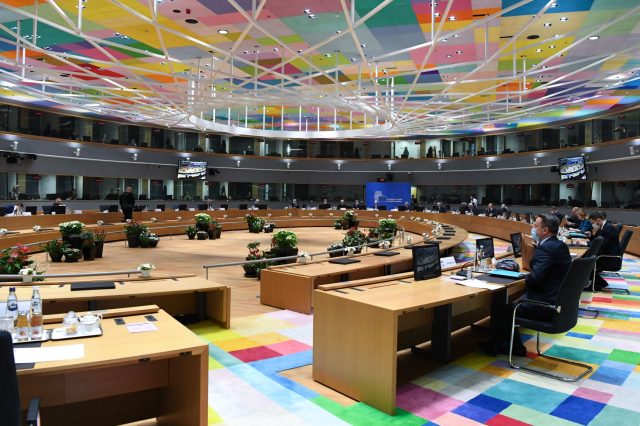
Focus on the review of the Financial Framework and the Israeli situation
The European Council met on 26 and 27 October to address the most urgent issues on the political agenda of the Union but also of all member states. International geopolitical tensions are obviously at the center of the issues, but the economic-financial and migratory situation also played a crucial role.
Starting from the economy, the European Council underlined the need to accelerate the growth process already within the Multiannual Financial Framework 2021-2027, with a series of reforms that provide for greater development of European competitiveness in the sector of digital and green technologies and also the increase in the production of clean energy at affordable prices. At the same time, there was a call to reduce critical dependencies by diversifying supply sources, a particularly thorny issue given the enlargement of the BRICS which now own the vast majority of the world’s raw materials. From a bureaucratic point of view, it is considered necessary to streamline the regulatory framework by simplifying the rules for Small-Medium Enterprises and Start-ups, today a combination of structured growth. Externally, it will then be necessary to address tariff distortions and act at all levels to make the European Union a favored partner in the application of the Inflation Reduction Act (IRA) issued by the United States. A key element also in light of European loyalty to the geopolitical causes in which the USA is among the protagonists.
On the Middle Eastern front, in fact, the European Council produced a joint declaration which harshly condemns Hamas while asking Israel to provide breaks and corridors for basic humanitarian needs, furthermore the EU will try to arrive at a “two peoples, two states” solution even if on this point the internal UN vote on the ceasefire itself underlines how there is an ideological-cultural difficulty towards this option. On the Ukraine issue, however, the EU reiterated full financial, economic, humanitarian, military and diplomatic assistance to Kiev, also tightening sanctions towards Moscow.
There are other hot scenarios in which Europe is a protagonist: one of these is the clash between Armenia and Azerbaijan over Nagorno Karabakh, where by mutual agreement it was decided to work to avoid an escalation by recognizing the full enjoyment of the Armenians of Karabakh rights and safety. On the Serbia-Kosovo issue, however, the real protagonist was the Italian Prime Minister Giorgia Meloni (FdI, ECR) who is working on both fronts so that both Serbia and Kosovo have a European path that will then lead to the reunification of the European continent, in this regard, it was underlined that talking about Ukraine and Moldova in the EU is incorrect towards those countries that have requested membership for much longer. Another crucial front is the Sahel, where however the supranational authority is ECOWAS with which an increasingly close relationship will necessarily have to be established.
However, a crucial theme was that of migration: in a letter from the President of the European Commission Ursula von der Leyen (CDU, EPP) it was underlined how wars could push new people to leave and therefore new wide-ranging partnerships were necessary to address the causes of migration. The solutions envisaged by von der Leyen are not dissimilar to those of the European conservatives: preventing irregular departures, strengthening external borders, combating human trafficking, increasing repatriations by allowing neighboring countries to monitor the borders and carry out rescues. On the memorandum of understanding, the need to accelerate the implementation of the 5 pillars signed with Tunisia was reiterated and Giorgia Meloni highlighted how a memorandum with Egypt is also needed, avoiding a blackmail attitude by providing economic resources in exchange for loyalty, but rather also providing local training measures to solve the social problems of African countries. In any case, it will be necessary to strengthen cross-border cooperation, since migrant repatriations are only 22% and the internal security situation risks becoming increasingly heated.
The Euro summit was also held at the same time as the European Council, where concern about inflation was growing and it was therefore decided to continue the coordination of the economic-fiscal policies of the member states, hypothesizing a new phase of development of the digital euro to also implement the “Single Currency Package”.



 Subscribe
Subscribe